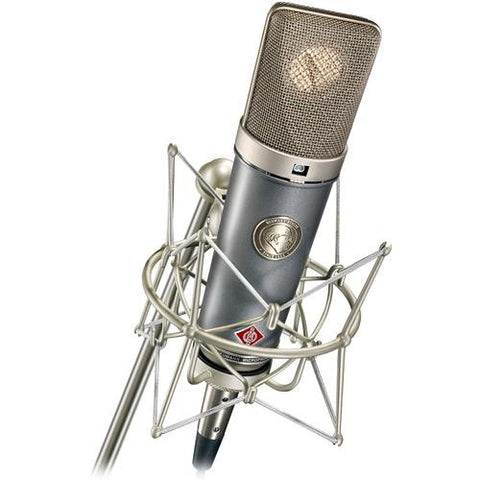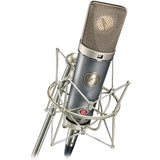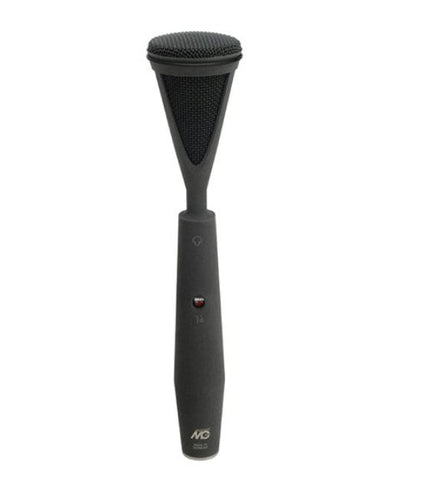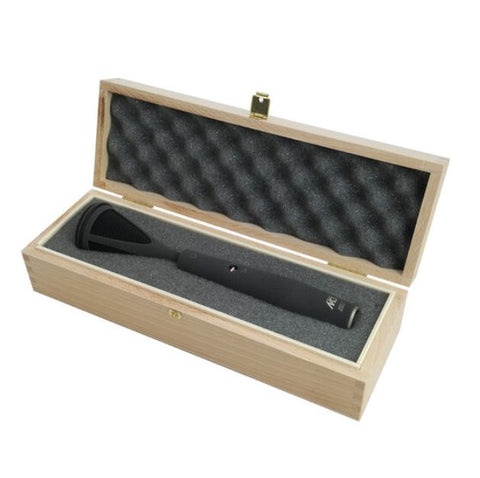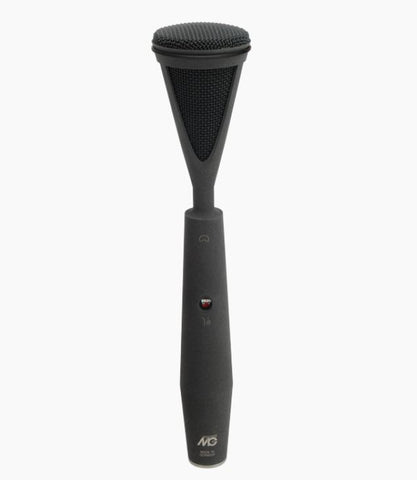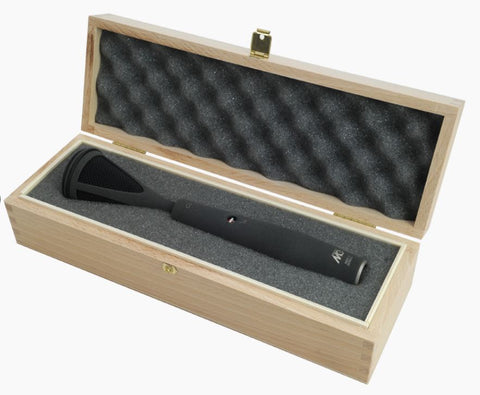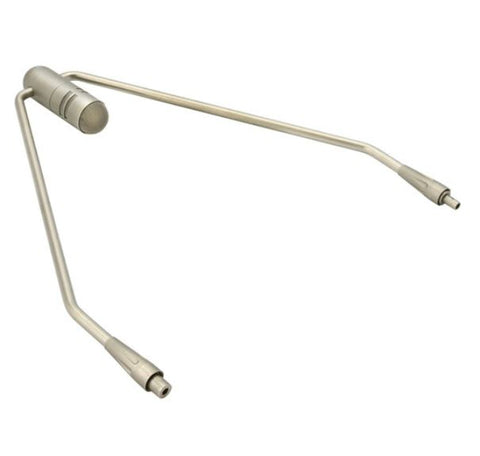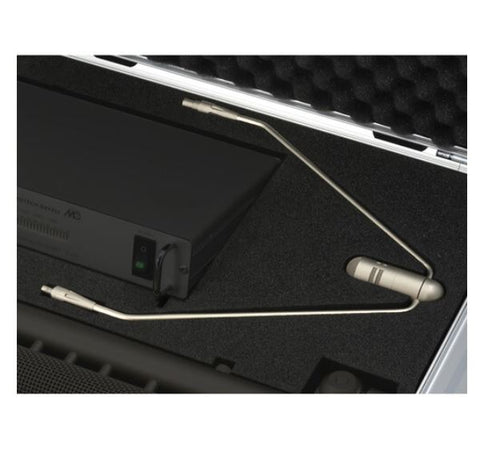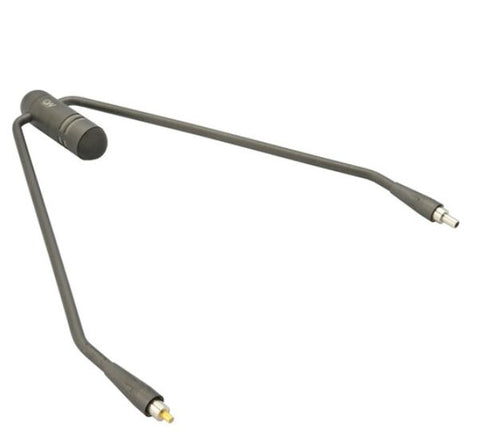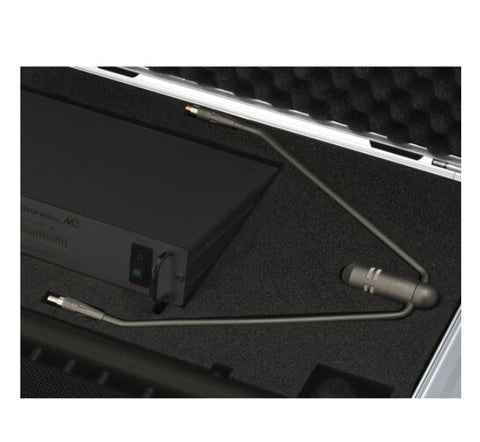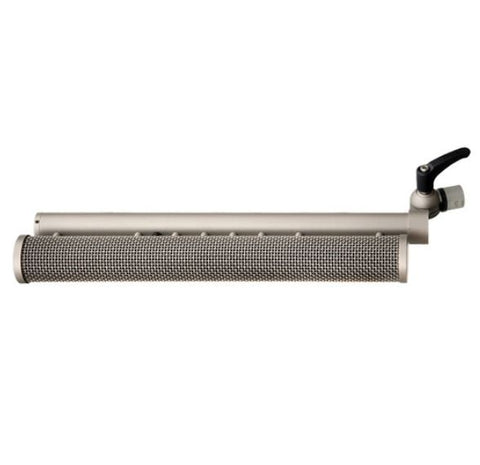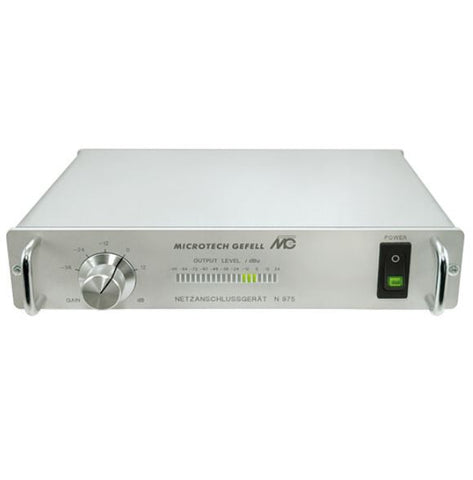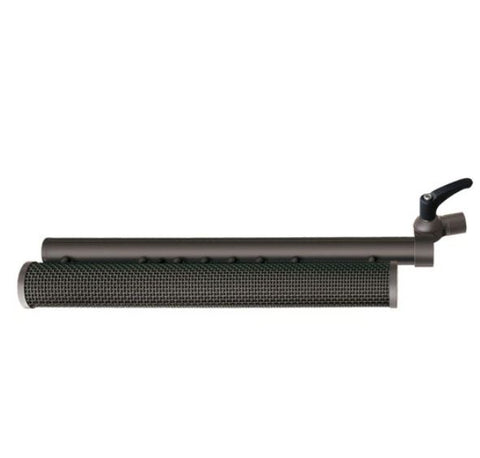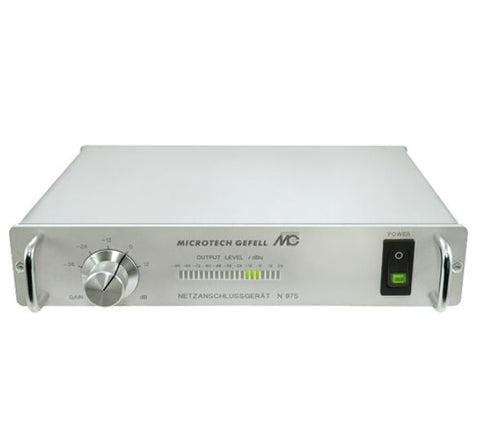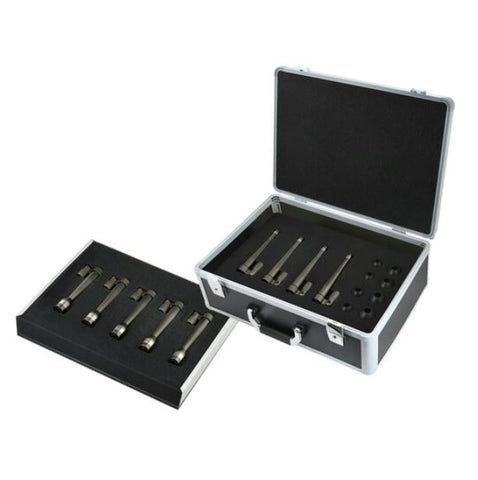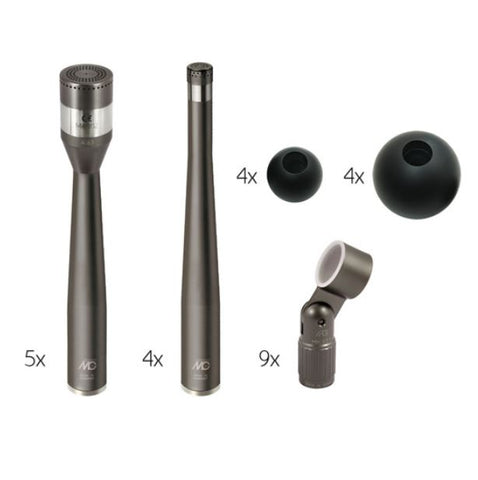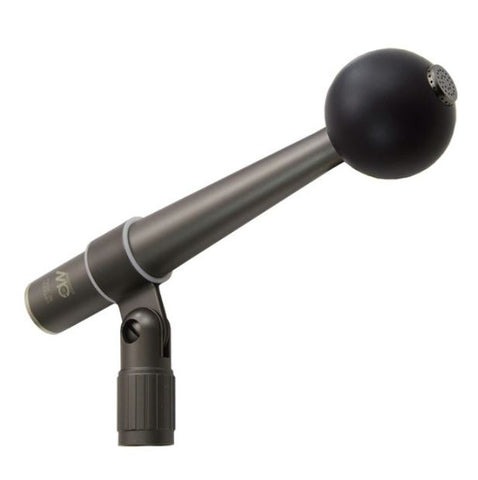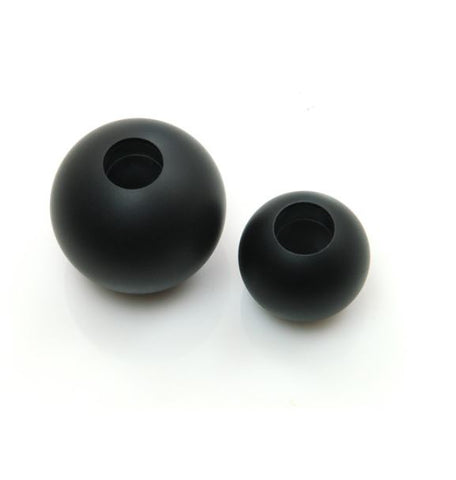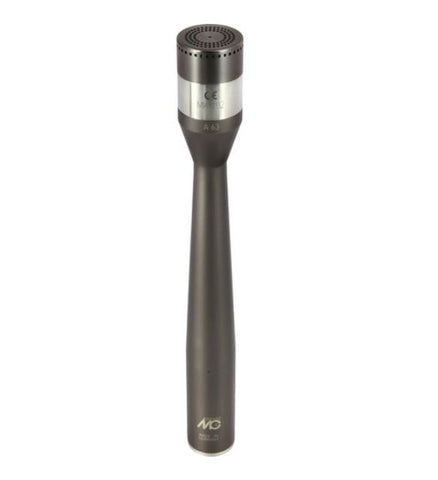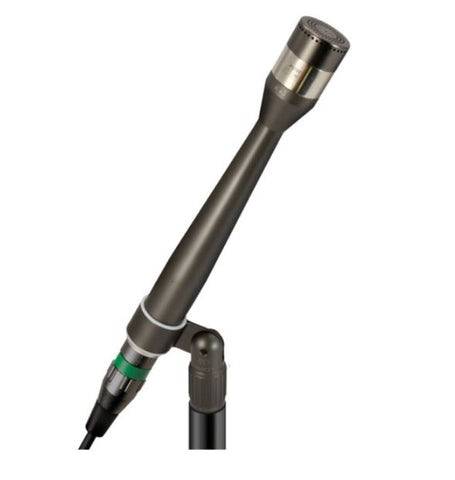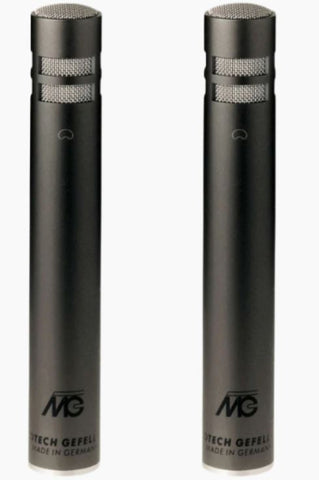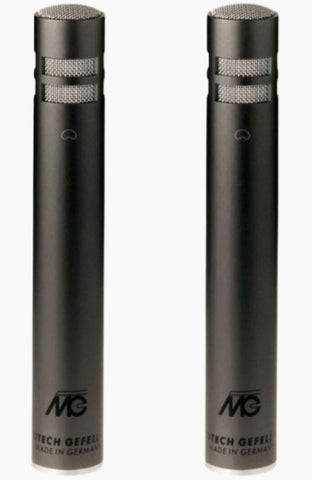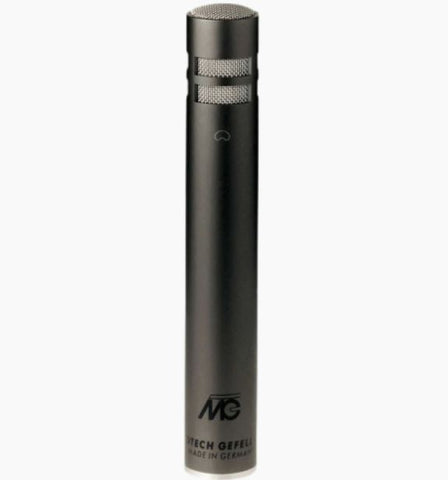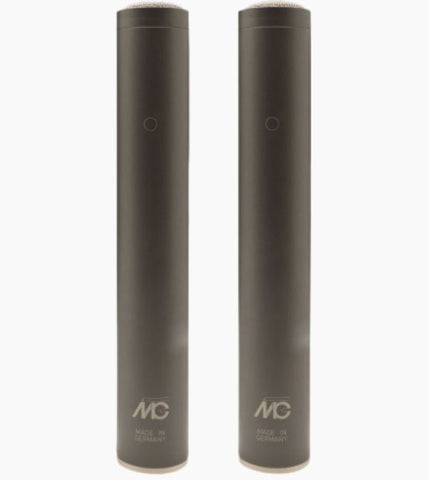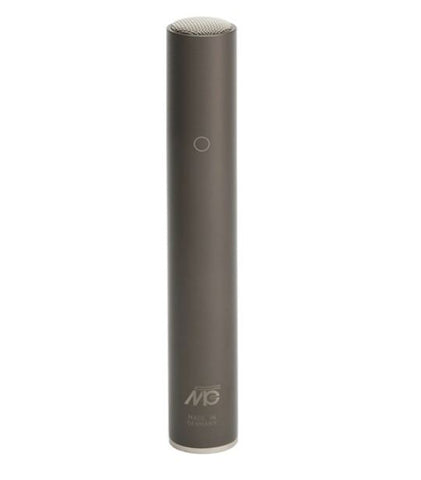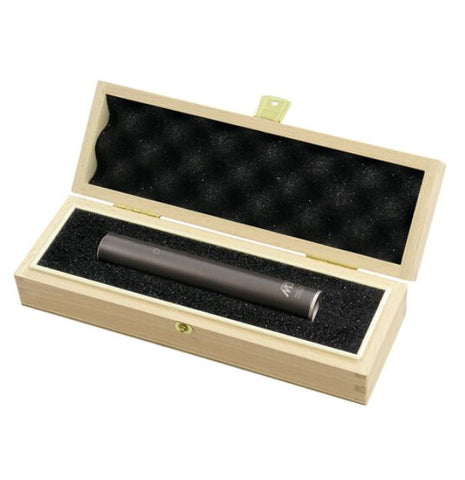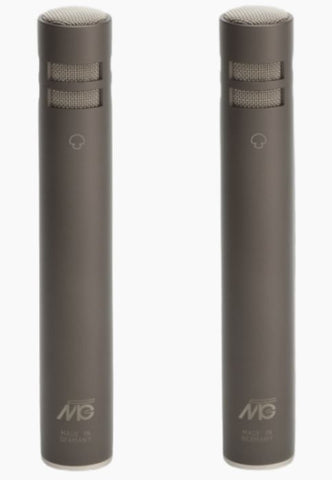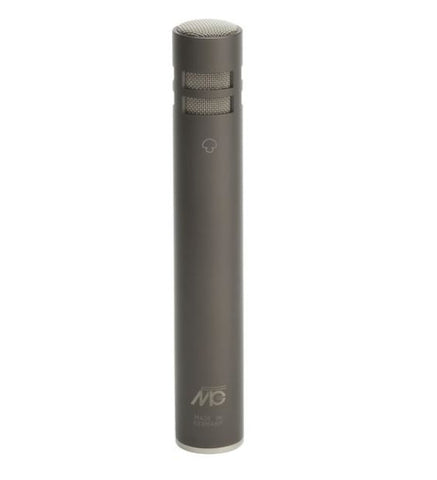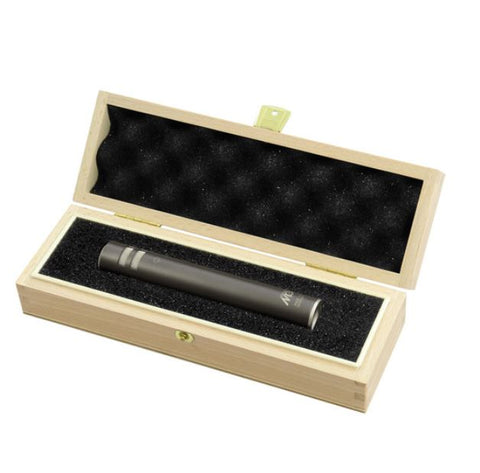Neumann TLM 67 SET Z Multi-pattern mic with K 67 capsule, omni, cardioid and figure 8 patterns, pad and filter. Ships in woodbox. Includes EA 87, WS 87 and IC 3/25 cable.
The Neumann TLM 67 SET Z Studio Microphone with Shockmount and Windscreen comes in colors pearl gray and nickel. Also, it is designed containing the TLM 67 microphone, a shockmount with elastic suspension, a windscreen, an XLR microphone cable, and a wooden box.
The Neumann TLM 67 is an omnidirectional, cardioid, and figure-8 large-diaphragm microphone. The TLM 67 is made based on the Neumann U 67. Like the U 67, the TLM 67 is capable of incorporating the K 67 capsule. Additionally, the circuit design closely is reproducing the sound characteristics of the U 67, without the use of tubes. It comes with three switchable directional characteristics, a selectable 10 dB pre-attenuation, and a high-pass filter that is permitting the detailed adjustments to be made, depending upon the specific recording situation.
The TLM 67 is suitable for a wide range of applications because of its control features. In addition to its primary role as a vocal microphone for all types of music and spoken voice, in orchestral recordings the TLM 67 is capable to be used as a main microphone and as a spot microphone for individual instruments.
The microphone is addressed from the side. A large wire-mesh grille is enclosing the elastically mounted double-diaphragm capsule. The directional characteristics is capable to be selected with the use of a switch below the grille. The selected setting is indicated by a symbol shown in a window above the switch.
In the TLM 67, an electronic circuit is used rather than a conventional output transformer. Like a transformer, the circuit is designed for ensuring a good common-mode rejection, effectively suppressing interference signals that affect the balanced modulation line. The microphone is capable to operate at sound pressure levels of up to 105 dB without distortion, and has a dynamic range of 94 dB (A-weighted), without the use of the pre-attenuation switch.
The pre-attenuation switch on the back of the microphone can be used to reduce transmission levels by approximately 10 dB. It should be used only when there is a risk of overloading following devices due to very high sound-pressure levels. Use of the switch does not increase the dynamic range of the microphone, but rather shifts it by 10 dB, to higher sound pressure levels. The other switch on the back of the microphone can be used to change the cutoff frequency of the built-in high-pass filter, so as to suppress the effects of impact sound and wind noise, or to compensate for the proximity effect. Elastic mounting of the capsule supplies protection from the transmission of structure-borne noise.
K 67 Capsule
The TLM 67 uses the K 67 dual-diaphragm capsule to closely emulate the sound of the classic U 67 microphone. The capsule is shockmounted inside the mic to reduce handling noise
Transformerless Design
The TLM 67 uses an electronic circuit instead of a conventional output transformer in order to achieve good common-mode rejection and accept high sound-pressure levels without distortion
Distinctive Look
The dual-color design features a blend of pearl-gray and nickel, and is accented by a 3D metal emblem of Georg Neumann to celebrate the company's 80th anniversary
Selectable Patterns
The microphone offers three selectable polar patterns including cardioid, omni, and figure-8
-10dB Pad
Perfect for louder sound sources, the switchable -10 dB pad gives the microphone extra headroom
High-Pass Filter
The switchable high-pass filter reduces low-end rumble and handling noise, and also compensates for the proximity effect
| Operating Principle | Pressure Gradient |
| Capsule | Condenser |
| Polar Pattern | Cardioid, Figure-8, Omnidirectional |
| Pattern Selection | Switched |
| Frequency Range | 20 Hz to 20 kHz |
| Maximum SPL | Omnidirectional: 110 dB SPL Cardioid: 105 dB SPL Figure-8: 111 dB SPL Omnidirectional: 130 dB SPL Cardioid: 125 dB SPL Figure-8: 131 dB SPL |
| Impedance | 50 Ohms |
| Load Impedance | 1000 Ohms |
| Sensitivity | Omnidirectional: 10 mV/Pa at 1 kHz into 1 Kilohms Cardioid: 18 mV/Pa at 1 kHz into 1 Kilohms Figure-8: 9 mV/Pa at 1 kHz into 1 Kilohms |
| Signal-to-Noise Ratio | Omnidirectional: 65 dB CCIR Cardioid: 70 dB CCIR Figure-8: 64 dB CCIR Omnidirectional: 78 dB A-Weighted Cardioid: 83 dB A-Weighted Figure-8: 77 dB A-Weighted |
| Equivalent Noise Level | Omnidirectional: 29 dB CCIR Cardioid: 24 dB CCIR Figure-8: 30 dB CCIR Omnidirectional: 16 dB A-Weighted Cardioid: 11 dB A-Weighted Figure-8: 17 dB A-Weighted |
| THD | < 0.5% |
| Output Connectors | 1 x XLR 3-Pin |
| Operating Voltage | 48 V |
| Dimensions | ø: 2.2 x L: 7.87" / ø: 55.88 x L: 199.9 mm |
| Weight | 1.08 lb / 490 g |
 USD
USD EUR
EUR
 AUD
AUD
 GBP
GBP
 JPY
JPY

